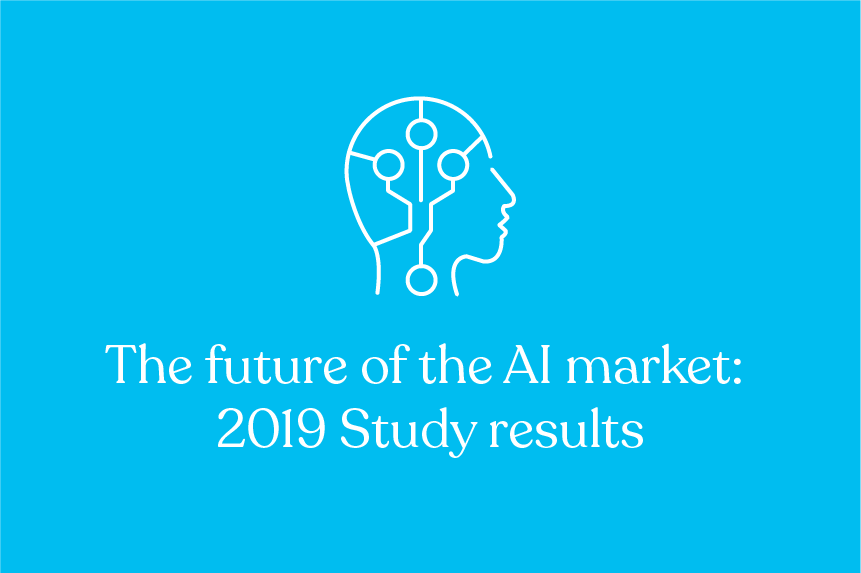What is Artificial Intelligence in Healthcare?
Artificial Intelligence (AI) encompasses a wide assortment of technologies and techniques that include machine learning (and more detailed subsets, neural networks and deep learning), augmented intelligence, natural language processing, and robotic process automation.
Radiologists, in particular, use AI technologies to sift through millions of images and screen for potential abnormalities and patterns to save time. By using these technologies to screen images and identify abnormalities in patient scans, radiologists can significantly reduce the risk for both misdiagnosis and oversight in their analyses. With AI algorithms detecting abnormalities quicker than the human eye, AI has the ability to drive more efficient workflows for radiologists.
Given this potential for time-savings, more accurate readings, and better workflows, it’s no surprise that artificial intelligence in the medical imaging market is estimated to rise from $21.48 billion in 2018 to a projected value of $264.85 billion by 2026, according to Data Bridge Market Research’s April 2019 report.
Given this growing trend, Definitive Healthcare surveyed imaging leaders and radiologists at U.S.-based hospitals and imaging centers from October to December 2019 in its annual Artificial Intelligence Survey in order to determine the adoption rate, primary areas of use and, greatest challenges related to AI usage in imaging. Here are the results:
Room for growth in artificial intelligence usage
One-third of respondents indicate that they currently utilize AI, machine learning, or deep learning to aid or assist in patient care imaging or business operations at their organization. Imaging centers report a slightly higher use rate of AI technology compared to hospitals (by 2.8%) —with more respondents reporting current use of an assistive technology at their imaging facility.
This difference in reported usage is most likely due to distinctions in the primary objectives of each facility type. Imaging centers, for instance, are heavily based in diagnostic imaging services and, therefore, may show greater willingness to explore AI technologies that have shown promise in image analysis and operational tasks.
2019 AI Usage in Imaging Centers & Hospitals

Fig 1: Artificial intelligence usage across verticals from Definitive Healthcare’s AI Study (2019)
Nearly one-third of responding organizations not currently utilizing AI indicate they will be using the technology within the next two years—with hospitals showing fewer plans for implementation than their imaging center counterparts.
When combining current use rates with planned implementation numbers, more than half (53%) of responding organizations say that they will be utilizing AI within the next two years to either perform or assist in patient imaging or business operations.
AI improves accuracy of medical diagnoses
The vast majority of respondents, 57.3%, feel that AI will have the greatest impact on patient care through the “ability to improve or assist in the accuracy of diagnosis and clinical outcomes.” Additionally, respondents felt that AI can offer operational improvements, provide faster diagnosis and early detection, and has the potential to improve the quality of specific existing technologies (e.g., MRI, CT, and mammography).
Greatest impact of AI in improving patient care

Fig 2: Where is the greatest impact on an organization’s impact to enhance patient care? Results from Definitive Healthcare’s AI Study (2019)
AI implementation challenges
For those facilities who have yet to adopt AI, cost remains the most significant obstacle in implementation—followed by a “lack of strategic direction” within their organization.” Respondents also show concerns with their organization’s existing information technology, citing both a “lack of necessary IT infrastructure” and a “lack of technical expertise” within their organization. However, hospital respondents indicate that a “lack of strategic direction” as a greater hurdle for their organization than concerns regarding information technology.
What are the challenges for organizations implementing AI programs?

Fig 3: The biggest hurdles for organizations in the implementation and use of artificial intelligence, machine learning, or deep learning for imaging. Results from Definitive Healthcare’s AI Study (2019)
2019 Artificial Intelligence Study round-up

Fig 4: Artificial intelligence 2019 Definitive Healthcare study round-up infographic
Although the 2019 Artificial Intelligence Study shows only a limited existing establishment of AI technologies across imaging centers, the widespread interest in these technologies will likely result in a rapid growth in AI implementation across all facility types—particularly as these technologies improve and become more widely-accessible in the next few years.
Further insight into precision medicine, predictive analytics, and the strategic approach of existing programs can be uncovered in Definitive Healthcare’s 2019 Artificial Intelligence Study. To read the in-depth study, contact us today.
Learn more
Definitive Healthcare’s Imaging Centers Database contains insight into over 15,800 hospital-based, freestanding, and portable imaging centers. With Definitive Healthcare’s platform, users can:
- Find RFPs for equipment: Get daily alerts on RFPs from imaging centers requesting medical device upgrades or service. Customize your home page so that you only see RFPs for new imaging equipment. View applicant profiles to confirm which radiology machines they’re currently using.
- Find key contacts: Identify directors of radiology and leaders at parent organizations. Import leadership phone numbers and emails into your CRM to fuel your lead generation efforts.
- Analyze radiology procedures: Examine claims data associated with specific imaging centers to confirm which radiology procedures they most frequently conduct. Analyze the radiology services each facility offers such as ultrasound, X-ray, MRI, and CT.
- Review affiliations: Identify an imaging center’s relationship with other facilities offering radiology services, hospitals, physician groups, ambulatory surgery centers, and other providers. Determine whether an imaging center is a designated independent diagnostic testing facility (IDTF).
2020 Trends Webinar: “8 Top-Of-Mind Trends for Physician and Hospital Buyers”
Wednesday, January 29th, 2:00pm ET
Are you interested in learning more about how AI will impact healthcare delivery in 2020 and beyond? Join Definitive Healthcare CEO Jason Krantz for our annual Healthcare Trends Webinar.
Make sure you’re prepared for a shifting market and a new decade—watch our on-demand webinar today!





